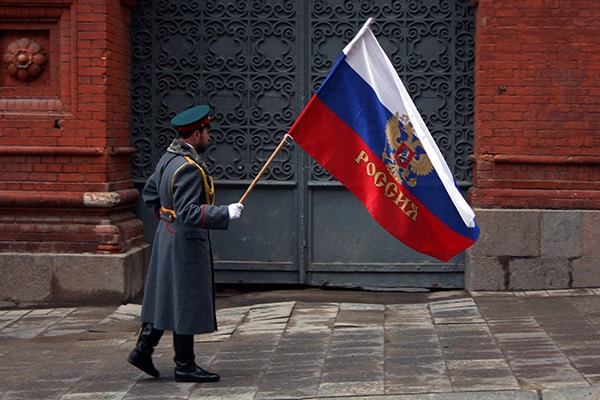
We are not facing a new Cold War, a point that has been made in these posts before, but we are witnessing a more traditional bout of arm wrestling. There is no ideological confrontation, even if some populists, ranging from Donald Trump to Marine Le Pen, admire Vladimir Putin’s style and political personality, and the latter likes such politicians because they suit Russian interests. Russia is no USSR, nor does it wield the latter’s geographical, military, economic or demographic sway over the West, although it is rebuilding its capabilities. Is Russia truly a threat to the West?
For some neighbouring or nearby countries the answer is undoubtedly yes. Like the Baltic states (Lithuania, Latvia and Estonia, where there are sizeable Russian minorities, an issue that remains to be resolved). Moscow maintains control over the exclave of Kaliningrad, formerly Königsberg, where Immanuel Kant lived and wrote his great works. There is little doubt that Russian troops, going a bit further than a ‘hybrid war’, would be able to occupy Ukraine, which is not in NATO, in a matter of days, but it would surely suit it more to maintain a ‘frozen war’ in the East, now that the annexation of the Crimea has been accepted de facto, if not de jure, by many of the other players.
As far as the Baltic states are concerned the menace is unabated, which is why, in a gesture of solidarity, NATO has deployed non-permanent troops and airpower (adhering to the letter of one of the few pacts signed on the question: the Russia-NATO Founding Act of 1997 –predating the first wave of new NATO members– and the 2002 Declaration of Rome), albeit aware that its limited forces would not withstand a genuine attack. They act as a deterrent and a fuse, because if NATO were not to act in response to such an event it would be the end of an Atlantic alliance that is based not only on resources but also on the credibility of its solidarity –collective defence– with its members. A Russian bomber recently turned up in the Bay of Biscay. Finland, theoretically neutral, although more and more closely aligned to NATO, signed a bilateral agreement with the US in October amid concern about Russian moves in the Baltic Sea.
Russian military activities on the ground (and in cyberspace) are on the rise. But although Russian cyberattacks on the West are significant, and have led NATO to create a special unit for this type of defence, they are trifling compared to those attributed to China.
In comparative terms Russia has lost a great deal. At the time of the break-up of the Soviet Union in 1991 it had a total population of 243 million. Today the Russian Federation has 144 million inhabitants, four million fewer than in 1991, although it is overcoming the serious demographic crisis it has experienced in recent decades. The birth rate is once again climbing (it reached 13.2/1,000 in 2013, higher than in the US and considerably higher than in Europe, indicating a brighter present and renewed confidence in the future), the mortality rate has fallen, Russian life expectancy has risen to 70 (compared with its neighbours’ 75-78), and there is more immigration. Meanwhile, NATO can boast 917 million inhabitants and 3.6 million troops (although its European forces are more or less in a state of unreadiness), set against 800,000 Russian troops, at least ostensibly modernised, not to mention aircraft and tanks.
Russia continues to be a nuclear power, the only one that can truly thwart the US in this area. China is some way behind, despite its modernisation programmes. Moscow has announced the development of strategic, or intercontinental, nuclear missiles, the RS-28 Sarmat, which NATO has dubbed Satan 2, to be brought into service in 2018 and capable of outsmarting the US and the Atlantic alliance’s anti-missile shield.
Its economy is in poor shape due to the fall in the price of oil (Russia is the third largest producer in the world, and ranks second in gas), and although it can use these resources to apply pressure, it also relies on them for the income they generate. It has been incapable of creating an economy based on the export of manufactured goods or services.
It defends what it has, like the naval base at Tartus and the airbase in Khmeimim, in Syria, its only base in the Mediterranean and the only one outside the former Soviet Union, and seeks others in Egypt, Iran, Vietnam and Cuba, to try to re-establish a global role. But it has shrunk, not so much in the context of a fraying Europe, but in comparison with the US and China. It also knows, however, that it is needed to resolve many global problems; and, as in the case of Syria, regional problems with widespread repercussions. But it is no longer what it was. The greatest danger for the West is that it ceases to exist, or at least that it ceases to believe in its own principles, not to export them, but to apply them to the countries that comprise it.


